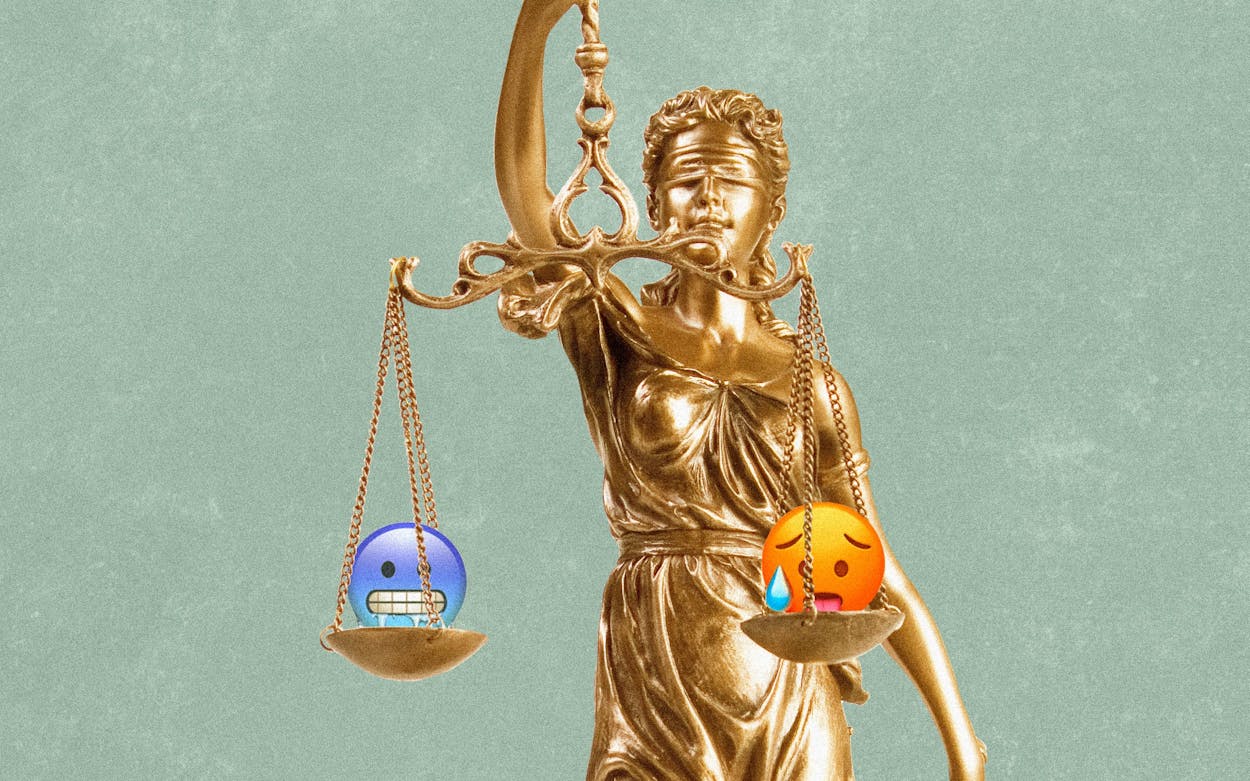The weather in 2021 has been unusual, but what’s happening right now is pretty normal: it’s mid-June in Texas and it’s hot. February blizzards are rare, and rainy springs don’t come every year, but no one stepping outside is shocked by the stultifying heat. This week, though, Texans have an extra stressor to accompany the sweaty season. On Monday, ERCOT—which has long portrayed itself as running the most market-driven electric grid in the nation—issued an advisory urging Texans to voluntarily turn up their thermostats and otherwise conserve electricity, lest the grid fail again and force us all to spend our days sweltering, whether we’re indoors or outside.
ERCOT, or the Electric Reliability Council of Texas (a name that’s grown more farcical by the month), suggested some specific conservation measures Texans could take: skipping doing the laundry during periods when the power supply is barely meeting demand; switching off the lights and unplugging electrical devices when they’re not being used; and, most significant, setting thermostats to 78 or warmer during the day. All of this is familiar to Texans who were asked to make similar sacrifices during the February winter storm, except this time we’re supposed to sweat instead of shiver. Despite some pushback on social media, ERCOT’s begging appears to have worked: on Tuesday, the agency issued a news release to celebrate that “Texans responded strongly by reducing electric demand during the late afternoon” shortly after the plea for conservation, a request it urged Texans to observe through the end of the week, at least. Great work, everybody!
But the celebratory note—and the prospect of millions of Texans having to regularly provide the “reliability” that seems to escape ERCOT’s grasp—got many of us thinking. Whose job is it, ultimately, to ensure that the electric grid doesn’t collapse in the middle of a heat wave, potentially killing your neighbors and causing widespread suffering across the state? Last week, Governor Greg Abbott declared that legislation he signed into law would “fix all the flaws” laid bare by the February blackouts. That clearly was not the case. Whether Abbott, ERCOT officials, or others responsible for designing and maintaining the Texas power grid acknowledge it or not, they expect us—we poor, sweaty saps—to make up for the deficiencies of the electric system. Just as it was our responsibility to conserve power in February so that fewer people might freeze to death. With that in mind, let’s try to figure out what is apparently the most pressing ethical question of the day: At what temperature should you set your thermostat?
Generally, there seem to be three schools of thought. One group maintains, effectively, a position of: “I’ll set my thermostat at whatever temperature I damn well please!”
Others are willing to endure some measure of sacrifice and less-than-ideal home comfort in an effort to contribute to the sustained ability of our rickety power grid to continue supplying electricity to themselves and their neighbors. Will they set their thermostats to 78, as suggested by ERCOT and the U.S. Department of Energy? Well, no, but they’re willing to compromise.
Still others, perhaps conditioned to accept a greater amount of civically minded discomfort by, you know, the global pandemic and the February deep freeze, have grudgingly agreed to shoulder the burden of trying to preserve the grid by sitting directly underneath their ceiling fans, which, according to the Department of Energy, can reduce your “feel-like” temperature by four degrees.
None of these positions is inherently unreasonable. In normal times, your indoor climate settings are a personal matter largely determined by individual preferences. Some Texans may have high heat tolerances, or are training for a summer of camping in Dubai. Some live in apartment complexes that don’t allow them to adjust the thermostats at all, or live in homes that rely on window units to keep them cool. Some have health conditions that could be exacerbated by high indoor temperatures, or have pets that need to stay cool even when their owners aren’t home. Some have energy-efficient windows, ceiling fans in every room, and crisp linen sheets that keep them cool even when temperatures outside rise. There’s no universally correct answer. But what seems especially galling to folks right now—even those who are willing to endure warmer temperatures at home—is that they’re being asked to sweat through their sheets at night while the governor and Legislature fail to address grid reliability on a systemic level.
With that in mind, we’d suggest that a just temperature would be one degree cooler than the one at which Greg Abbott sets his thermostat in the middle of the day. The governor’s office so far has not responded to our request for that temperature, but we’ll let you know if we hear anything.
- More About:
- Energy








